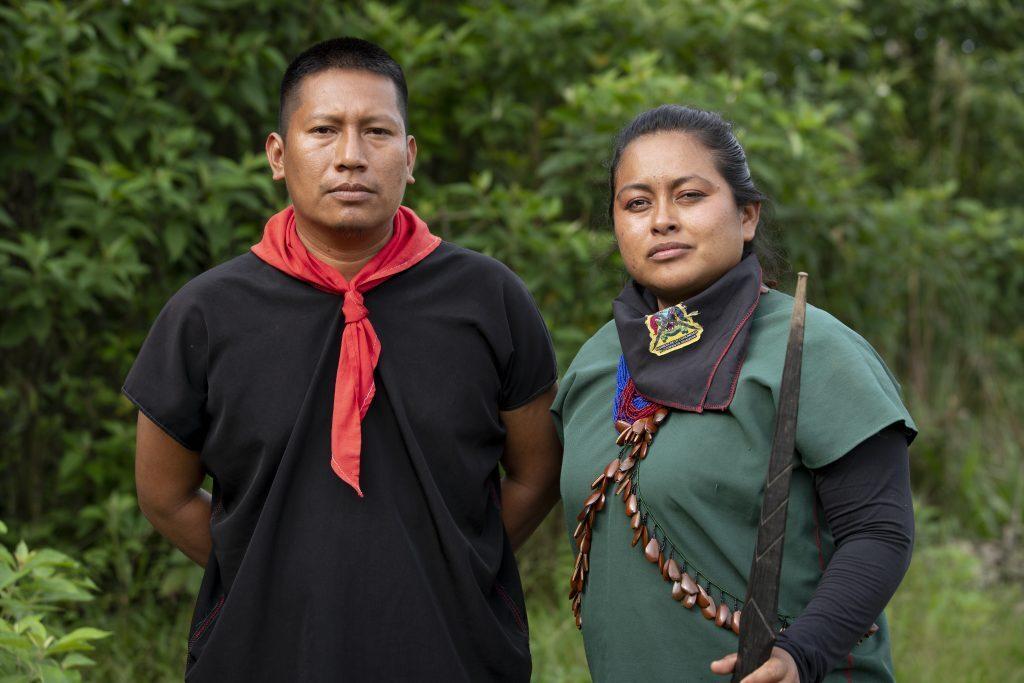Indigenous activists in Ecuador’s Amazon win major environmental award for reclamation of native lands
In 2017, a group of indigenous forest patrol in Ecuador’s Amazon discovered a serious threat to their community.
“We flew a drone over an inaccessible area, and placed camera traps along remote trails,” Alexandra Narváez said. “And we saw mining excavators in the river, and trucks cutting down trees.”
Narváez belongs to the Cofán community, a 1,200-member Indigenous tribe that has lived in the Ecuadorian Amazon for centuries. She said that she and her team were angry to see these machines doing work there without the people’s consent.
It turned out that the Ecuadorian government had signed 20 deals for large-scale gold mining in Sinangoe. An additional 32 were in the process of being approved.
Narváez, together with another activist, Alex Lucitante, organized a group of Indigenous people in Sinangoe to protect the land. With the help of international organizations, the Cofán filed a lawsuit against the Ecuadorian government in 2018. It resulted in 79,000 acres of rainforest being protected from gold mining.
Now, thanks to their efforts, the two activists have been awarded the Goldman Environmental Prize, which “recognizes individuals for sustained and significant efforts to protect and enhance the natural environment, often at great personal risk,” its website says.
Gold, copper, silver and oil — all of these natural resources are found in this region. But mining operations are also a threat to the people who live there.
This ancestral land has been severely damaged by decades of mining operations. For this reason, in 2017, the Cofán, led by Narváez and Lucitante, created La Guardia Indigena, an Indigenous forest patrol, which uses drones and GPS tracking devices to monitor the land.
“We surveil our territory,” said Narváez, who was also the first woman to join the patrol. “We walk around and make sure no outsider contaminates our river, or hunts animals without our permission.”
Narváez gathered the evidence to be presented in court.
“We got photos and video to prove our allegations were real,” she said.
In the meantime, Lucitante led dozens of protests against these newly discovered mining operations.
For Lucitante, who works as a traditional healer, the Cofán territory is sacred and it’s not for sale.
“It would be like selling your own mother. It feeds us, and nourishes us spiritually.”
“It would be like selling your own mother,” he said. “It feeds us, and nourishes us spiritually.”
Their activism attracted support from international environmental groups like Amazon Frontlines, which provided technical support for the legal battle.
Viktor Marco, media coordinator with Amazon Frontlines Ecuador, said that the problem goes beyond the big mining companies.
“Once that infrastructure tears roads, it encourages smaller miners, illegal poachers, to use those paths to penetrate the lands,” he said. “And there’s no recourse for people trying to stop them, They’re not heard.”
According to Marco, the main challenge in Sinangoe was to convince Indigenous people that change was possible.
“When you have a community that has felt disenfranchised for so long, they don’t believe they can take ownership back.”
The legal battle went on for a few years, until Ecuador’s supreme court ruled in their favor.
Now, Indigenous communities must approve any mining project on their lands.
The Cofán people have a lot to celebrate, according to Marco.
“To win a constitutional court ruling of this magnitude is one of the most powerful things that can happen, not just for Ecuador, but for Indigenous people all across South America,” he said. “To partake in your territory and your in your land is a part of what makes an Indigenous community thrive and live.”
To protect the planet, Lucitante said, it’s often up to Indigenous people to take the lead.
